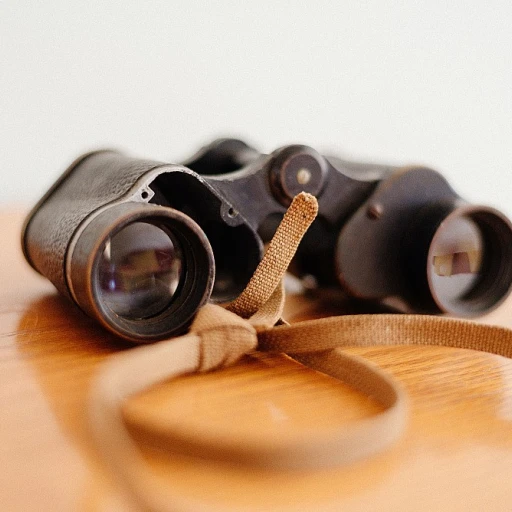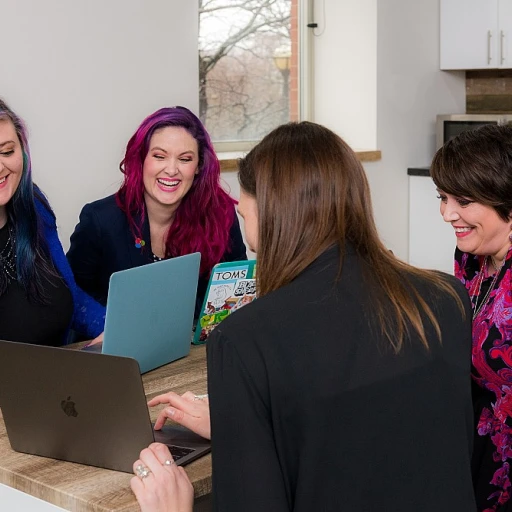
Understanding the unique expectations of hr interviews
What Makes HR Interviews Different?
When you step into a human resources job interview, you’ll notice it’s not quite like interviews for other roles. HR professionals are trained to look beyond your resume. They focus on your interpersonal skills, your understanding of company culture, and your ability to handle sensitive situations. The questions you’ll face are designed to reveal how you think, act, and communicate in a professional environment.
Key Qualities HR Interviewers Seek
In HR job interviews, hiring managers want to see more than just technical knowledge. They’re evaluating your:
- Communication skills – Can you express yourself clearly and listen actively?
- Ethical judgment – How do you handle confidential information or tricky scenarios?
- Understanding of company culture – Are you a good fit for the team and values?
- Ability to resolve conflicts – Can you mediate and support others at work?
- Adaptability – Are you open to change and able to learn quickly?
These qualities are often assessed through behavioral and situational interview questions. You’ll want to prepare examples from your experience that show your skills in action. The importance of communication in HR interviews can’t be overstated, as it’s a core part of the role.
What to Expect During the Interview Process
HR interviews typically involve several stages. You might start with a phone screen, followed by in-person or video interviews. Each step is designed to help the interviewer understand your professional story, your approach to common interview questions, and your fit for the job description. You’ll also be evaluated on your body language, your ability to answer questions concisely, and how well you’ve researched the company.
Remember, the interview process is a two-way street. It’s your chance to learn about the company, the team, and the role. Take time to ask questions that help you decide if this is the right step for your career. By understanding what makes HR interviews unique, you’ll be better prepared to showcase your personal brand and stand out to hiring managers.
Preparing your professional story
Crafting Your Professional Narrative
When preparing for an HR job interview, one of the most powerful tools you have is your own story. Hiring managers want to see not just your skills, but also how your career journey aligns with the company’s needs and culture. A well-prepared professional narrative will help you stand out in a competitive interview process.
- Review the job description: Carefully analyze the requirements and responsibilities. This will help you connect your experience to what the company is seeking.
- Highlight relevant experience: Focus on past roles and projects that directly relate to the HR position. Use specific examples to show how you’ve handled similar challenges.
- Showcase your skills: Emphasize both technical HR skills and soft skills like communication, problem-solving, and adaptability. These are often assessed through common interview questions.
- Prepare for behavioral questions: Use the STAR method (Situation, Task, Action, Result) to structure your answers. This approach helps you clearly demonstrate your impact and decision-making process.
- Align with company culture: Researching the company’s values and work environment will help you tailor your story. Mention how your personal brand and professional values fit with their mission.
Practical Steps to Prepare
Start by writing down key achievements from your career. Practice telling your story out loud, focusing on clarity and confidence. Pay attention to your body language during mock interviews, as non-verbal cues are important in HR job interviews.
Don’t forget to prepare for questions about gaps in your work history or transitions between roles. Be honest and frame these moments as opportunities for growth and learning.
For those wondering about attire, choosing the right outfit can boost your confidence and help you make a good first impression. For more interview tips on dressing for success, check out this guide on choosing the right suit for a men’s interview.
By taking the time to prepare your professional story, you’ll be ready to answer interview questions with authenticity and poise. This preparation will help you connect with the interviewer and demonstrate why you’re the right fit for the role in human resources.
Mastering behavioral and situational questions
How to Approach Behavioral and Situational Interview Questions
In HR job interviews, hiring managers often rely on behavioral and situational questions to assess your fit for the role and the company culture. These questions help interviewers understand how you have handled challenges in the past and how you might respond to future scenarios. Preparing for these types of questions is essential to demonstrate your professional skills and experience.
- Behavioral questions focus on your past actions. For example: "Tell me about a time you resolved a conflict at work."
- Situational questions present hypothetical scenarios: "How would you handle an employee who is consistently late?"
To answer effectively, use the STAR method (Situation, Task, Action, Result). This structure will help you organize your thoughts and provide clear, concise responses that highlight your skills and achievements.
| Step | What to Include |
|---|---|
| Situation | Briefly describe the context or challenge. |
| Task | Explain your responsibility or goal. |
| Action | Detail the steps you took to address the situation. |
| Result | Share the outcome and what you learned. |
When preparing for your job interview, review the job description and identify key skills the company is seeking. Think of examples from your career that demonstrate those skills in action. Practicing your answers out loud can help you sound more confident and natural during the interview process.
Don’t forget that your body language and communication style also play a role. Maintain eye contact, listen actively, and show enthusiasm for the role. These non-verbal cues can reinforce your answers and help build rapport with the interviewer.
For more interview tips on standing out and embracing company culture, explore how creative recognition can play a part in your professional story.
By preparing for common interview questions and practicing the STAR method, you will help prepare yourself to answer even the most challenging scenarios with confidence and professionalism.
Demonstrating knowledge of hr trends and best practices
Showcasing Your Understanding of HR Evolution
When you step into a job interview for a human resources role, hiring managers expect you to be more than just familiar with the basics. They want to see that you are up to date with the latest HR trends, best practices, and how these impact the company and its people. This is your chance to demonstrate that you are proactive in your career and committed to continuous learning.
- Researching company culture and industry trends: Before your interview, take time to research the company’s approach to HR, their values, and any recent changes in their work environment. Use social media, company blogs, and industry news to gather insights. This will help you answer questions about how you would align with their culture and contribute to their goals.
- Referencing current HR topics: Be ready to discuss topics like remote work policies, diversity and inclusion, employee engagement, or the use of HR technology. Mentioning these in your answers shows you understand what’s shaping the profession today.
- Connecting trends to the job description: When you prepare for interview questions, link your experience and skills to the specific needs of the role. For example, if the job description highlights change management, talk about how you’ve helped implement new HR systems or processes in your previous work.
Demonstrating Best Practices in Your Answers
Hiring managers often use behavioral and situational interview questions to see how you apply HR best practices in real scenarios. Use the STAR method (Situation, Task, Action, Result) to structure your answers clearly. This not only helps you stay organized but also shows your ability to reflect on your experience and communicate professionally.
- Highlighting continuous improvement: Share examples of how you have kept your skills current, such as attending webinars, earning certifications, or participating in HR communities. This demonstrates your commitment to professional growth.
- Discussing ethical decision-making: HR professionals are often faced with tricky situations. Be prepared to talk about how you stay informed about legal requirements and ethical standards, and how you apply them in your work.
Practical Tips to Prepare
- Review recent HR news and trends before your interview.
- Prepare interview examples that show your adaptability to new HR practices.
- Practice answering common interview questions about HR challenges and solutions.
- Be ready to discuss how you would help the company stay competitive in attracting and retaining talent.
By demonstrating your knowledge of HR trends and best practices, you show the interviewer that you are not only prepared for the role but also ready to help the company grow and adapt in a changing work environment.
Building rapport and communicating effectively
Making a Strong First Impression
A good first impression in a job interview can set the tone for the entire conversation. Pay attention to your body language—maintain eye contact, offer a firm handshake, and sit upright. These non-verbal cues show confidence and professionalism. Dress appropriately for the company culture and the role you are applying for. Researching the company beforehand will help you align your appearance and attitude with their expectations.Communicating with Clarity and Purpose
Effective communication is more than just answering interview questions. Listen carefully to the interviewer and take a moment to organize your thoughts before responding. Use the STAR method (Situation, Task, Action, Result) to structure your answers, especially for behavioral and situational questions. This approach helps you provide clear, concise examples from your work experience that demonstrate your skills and fit for the job description.- Speak at a moderate pace—don’t rush your answers.
- Be honest if you need a moment to think about a question.
- Show enthusiasm for the role and the company.
Building Rapport with the Interviewer
Building rapport with hiring managers and human resources professionals can help you stand out. Smile genuinely and use the interviewer’s cues to guide the conversation. If appropriate, reference something you learned about the company during your research or from their social media channels. This shows you are invested in the opportunity and have taken the time to prepare for the interview process.Showcasing Your Personal Brand
Every interaction in a job interview is a chance to reinforce your personal brand. Highlight your career achievements and how your skills will help the company succeed. Be mindful of your tone and word choice—professionalism and authenticity go a long way. If you don’t know the answer to a question, admit it honestly and explain how you would find the information or solve the problem. This demonstrates integrity and a willingness to learn, both valued in human resources roles.Tips for Effective Communication in HR Job Interviews
| Tip | How It Helps |
|---|---|
| Practice common interview questions | Boosts confidence and prepares you for the interview process |
| Research the company and role | Shows initiative and helps tailor your answers |
| Use positive body language | Conveys professionalism and engagement |
| Ask thoughtful questions | Demonstrates interest and helps you assess company fit |
Handling tricky scenarios and ethical dilemmas
Approaching Difficult Scenarios with Confidence
During HR job interviews, you may face challenging questions that test your judgment, ethics, and ability to handle sensitive situations. These scenarios are designed to assess not just your technical skills, but also your alignment with the company culture and your understanding of the human resources profession. Interviewers often present hypothetical situations or ask about past experiences where you had to make tough decisions. They want to see how you apply the STAR method (Situation, Task, Action, Result) to structure your answer, providing clear context and demonstrating your thought process.- Stay calm and composed – Take a moment to gather your thoughts before answering. This shows professionalism and self-control, qualities hiring managers value.
- Be honest about your experience – If you haven’t faced a particular scenario, explain how you would approach it based on your knowledge of HR best practices and company policies.
- Highlight your ethical standards – Use examples that show your commitment to fairness, confidentiality, and compliance with laws and regulations. This helps build trust with the interviewer.
- Showcase your problem-solving skills – Describe the steps you would take to resolve conflicts, support employees, or address misconduct, always linking your actions to positive outcomes for the company and team.
Demonstrating Integrity and Professional Judgment
Hiring managers are looking for candidates who can handle pressure and make decisions that reflect well on the company. When preparing for your job interview, review the job description and think about the types of ethical dilemmas or tricky scenarios that might arise in the role. Researching company values and recent news can also help prepare you for relevant interview questions. Common interview questions in this area might include:- "Tell me about a time you had to address a breach of company policy."
- "How would you handle a conflict between two team members?"
- "Describe a situation where you had to balance the needs of the business with employee well-being."
Tips to Prepare for Ethical and Tricky Interview Questions
- Review your past work experience for relevant examples.
- Practice structuring your answers using the STAR method.
- Stay updated on HR trends and legal requirements through social media and professional networks.
- Reflect on your personal brand and how you want to be perceived by the interviewer.










